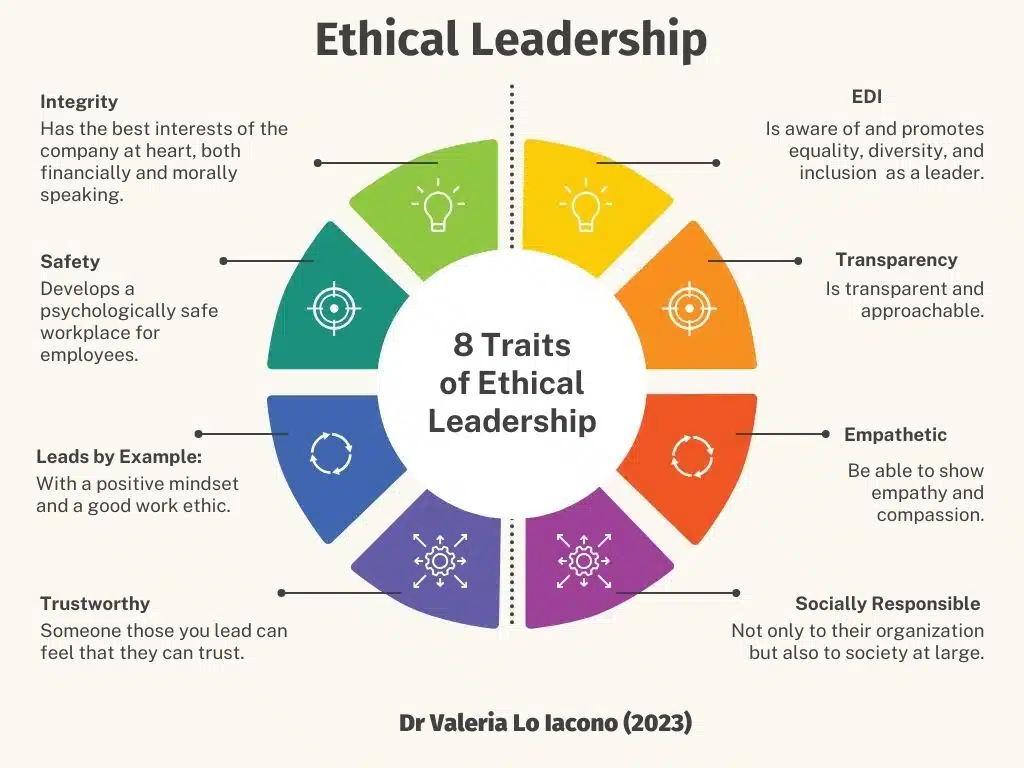By Paul Bramson, CEO — The Paul Bramson Companies
Effective leaders have many qualities and varying attributes to their individual styles and how they build, create and motivate thriving teams and organizations. However, there is one fundamental element found at the core of every successful leader and that is integrity.
Serving as a foundation and ethical guide, integrity embodies the leader’s unwavering commitment to act consistently with moral principles, regardless of the circumstances or potential personal gain.
The role of integrity in leadership cannot be overstated; it is the lens through which all actions are taken and ultimately through w judged by team members, stakeholders, and the broader community. Integrity in leadership influences how decisions are made, how challenges are approached, and how change is navigated to ensure that leaders not only aim to achieve success but do so in a respectful, ethical, and sustainable manner.
During times of change, the importance of integrity becomes even more pronounced. Leaders are often faced with decisions that test their values and principles. During these times, integrity serves as a compass, guiding leaders to make choices that are in the organization’s best interest and reflective of ethical standards.
The foundation of trustworthy leadership
Leading with integrity builds trust as individuals act in accordance with what they say and own up to their mistakes. In other words, they practice what they preach and lead by example. When leaders consistently act honestly and uphold their moral principles, it enhances the organization’s reputation and builds trust in the brand and the team. This trust is crucial for effective leadership and organizational success.
An environment built on trust encourages and fosters a culture of open and transparent communication. This transparency is vital for collaboration and teamwork as well as for addressing problems early, making informed decisions, and maintaining a positive work environment.
The relationship between a leader’s integrity and the organization’s reputation is significant, as stakeholders — including customers, partners, and employees — are more likely to engage with and support an organization known for its ethical leadership. This reputation for integrity attracts and retains talent and builds customer loyalty.
Guiding decision-making with integrity
Integrity plays a critical role in decision-making ensuring that choices are made ethically while aligning with the organization’s values. Leaders face many challenges, including pressure to achieve short-term goals or to cut corners. Integrity guides them to make decisions that are not only beneficial in the short term but also sustainable and beneficial in the long run.
When leaders encounter challenges, have to make tough decisions or navigate turbulent times, reliance on that core of integrity is imperative. It becomes the base on which to weigh the possible outcomes, good and bad, of tough decisions. This approach promotes fairness and accountability, essential for maintaining trust within the organization and with external partners.
Leaders can establish clear ethical guidelines and ensure their actions are consistent with these standards by being open and transparent with their teams. When faced with tough decisions, leaders must seek diverse perspectives and gather as much information as possible to make informed choices. It’s also important for leaders to communicate their decision-making process, explaining how their choices align effectively and clearly with their and the company’s values and mission.
Integrity as a strategy for navigating change
Integrity is crucial for leaders facing organizational changes, such as restructuring, mergers, or shifts in the market, serving as a reliable compass for managing these transitions effectively. Leaders can provide a sense of stability and trust for their teams, which is essential for successfully navigating change.
A key element here is approaching change transparently, sharing information and plans with their teams as soon as possible or they can. This openness helps reduce uncertainty and anxiety among employees. Moreover, by involving and keeping team members informed in the change process and considering their input, leaders demonstrate respect and value for them as humans as well as for their contributions, further strengthening loyalty and commitment.
Cultivating an integrity-based culture
Creating a culture that values integrity requires deliberate action from leaders. This culture is characterized by honesty, ethical behavior, and a commitment to doing what’s right. For leaders, the process of cultivating such a culture begins with themselves — setting the standard for integrity and ensuring their actions consistently reflect those values.
To embed integrity into the corporate culture, leaders should:
- Lead by example: Demonstrate integrity in every action and decision. When leaders consistently act with honesty and uphold ethical standards, they set a powerful example for their teams to follow.
- Establish clear values: Clearly define the organization’s values and ethical standards. Communicate these values regularly and integrate them into all aspects of the organization, from recruitment and onboarding to performance evaluations and decision-making processes.
- Promote open communication: Encourage a culture where employees feel safe to speak up about ethical concerns without fear of retaliation. Open communication channels for reporting unethical behavior are essential for maintaining an integrity-based culture.
- Provide training and resources: Offer regular training on ethical behavior and decision-making to equip employees with the knowledge and tools they need to act with integrity in their roles.
- Reward ethical behavior: Recognize and reward employees who demonstrate integrity to reinforce the importance of ethical behavior and encourage others to act in accordance with the organization’s values.
- Enforce accountability: Apply a consistent approach to addressing unethical behavior, regardless of the individual’s position in the organization. Enforcing accountability shows that integrity is non-negotiable.
Cultivating an integrity-based culture has long-term benefits. It creates a positive work environment, enhances the organization’s reputation, and contributes to sustainable success. By prioritizing integrity, leaders can foster an environment where ethical behavior is valued and rewarded, leading to a stronger, more resilient organization.
Leaders who demonstrate integrity through consistency between their words, values, and actions establish confidence among employees, stakeholders, and customers. Their willingness to acknowledge mistakes and commit to correcting course further strengthens organizational trust and resilience.
Furthermore, integrity drives leaders to have the courage to do the right thing, even with the hardest challenges. Integrity turns obstacles into opportunities for organizational growth and advancement.
Ultimately, professional integrity serves as the compass, keeping leaders oriented to the true north even amidst storms of change. With integrity as their guide, leaders can steer their organizations toward positive transformation.
About the Author: Paul Bramson is widely regarded as one of the most impactful and gifted keynote speakers and trainers globally. He consistently delivers compelling talks and training workshops that leave a lasting impression. Paul is recognized as a thought leader in the areas of communication, leadership, and sales. He has over 25 years of experience inspiring all levels of professionals, leaders, and teams. Paul’s ability to captivate and entertain audiences stems from his genuine passion, unique talents, and commitment to being better.



